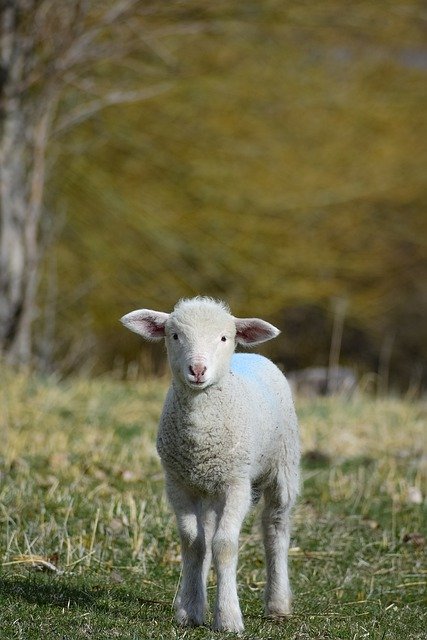Our Legal Heritage: The lamb that strayed too far from home

In 1884, a lamb skipped its way into Scottish legal history after it entered unfriendly territory.
Winans v Macrae [1885] 22 SLR 692 is a leading case on the issue of trespass by animals and affirmed the requirement for actual material damage for a successful interdict claim.
Mr Macrae, a cottar working as a shoemaker, occupied a house on the grazing lands of the large Morvich estate in Glen Shiel – owned by Mr J T Mackenzie.
Mr Macrae, with his wife, had occupied the house for some time and previously owned sheep. With the knowledge and acquiescence of Mr Mackenzie and previous tenants of the estate, Mr Macrae had used the edges of the Morvich forest to graze his animals.
In 1882, William Louis Winans took occupation of the estate under a 21-year lease. Winans turned the area in question into a deer forest and was adamant the area must be kept free from grazing animals to allow the deer to flourish.
Mr Macrae, as he had done previously, allowed some sheep to graze on these lands. Mr Winans objected to this, claiming it was trespass and warned Mr Macrae to remove the sheep.
This trespassing dispute escalated in the summer of 1884 after Mr Macrae found a lamb on the bank of a nearby stream when it was about three weeks old. It was badly injured so he took it home to care for it.
Under the care of his wife, the lamb grew stronger and after some time being fed exclusively indoors, it was eventually strong enough to go outside. It was occasionally seen grazing on the lands of Morvich, which was not protected by any fences.
Claim for interdict
Mr Winans believed this to be an act of trespass and sought an interdict to prevent Mr Macrae from grazing his sheep on the lands. He brought an action in the local Sheriff Court to interdict Mr Macrae “from putting any lamb, lambs, sheep, cattle, or other bestial upon the lands of Morvich, in the parish of Glenshiel and county of Ross, or any part of said lands, for the purpose of grazing, and from grazing any lamb, lambs, sheep, cattle, or other bestial upon the lands of Morvich aforesaid, or any part thereof, and to grant interim interdict”.
He claimed that Mr Macrae had intentionally allowed the lamb to graze there and had threatened to continue the action. Winans claimed that the trespass would continue if the interdict was not granted and he urged the court to do so.
In defence, Mr Macrae conceded that he had been in the habit of grazing sheep there for many years but had not asserted any legal right to do so. When the pursuer had objected to sheep grazing on his lands previously, he had removed them.
Mr Macrae denied that he had threatened to graze the sheep there and said that he had been unaware that the lamb had even entered the deer forest. He asked the court to dismiss the action.
Initially, the court awarded an interim interdict, which was served on 1 August 1884. The pet lamb was removed on 3 August.
On the matter of a more permanent interdict, the case went before the Sheriff-Substitute who had to answer two questions: did the defender put the lamb there to graze; and did he threaten to continue to graze it and other animals on the pursuer’s lands?
The Sheriff-Substitute answered both in the negative, saying that there was no evidence that either of these were true, and he refused to grant the interdict. He did qualify that, however, stating that the respondent may have been guilty of negligence by not preventing the lamb from straying.
Unsatisfied with the conclusion by the Sheriff-Substitute, Mr Winan appealed to the Sheriff.
The Sheriff found that it was an act of trespass for Mr Macrae to allow his animals to graze there, and an interdict was granted.
Appeal to the Court of Session
A further appeal was launched by Mr Macrae who argued that the common law of Scotland placed the burden on the neighbour to exclude any unwanted animals from their lands. He claimed that an interdict should only be granted where the pursuer has not been able to remedy the matter himself.
The lamb had simply strayed off the public road and onto the Morvich estate as it is not protected by fences.
The case went to the Inner House of the Court of Session and was heard by the Lord Justice-Clerk, Lord Young, Lord Craighill, and Lord Rutherford Clark.
The court refused to allow the interdict on the ground that the pursuer could not indicate any injury or harm had been suffered. The court instructed Mr Winans that if he wished to restrict lambs or other creatures from entering his lands then it was his responsibility to make provisions for this.
Lord Young commented in his judgment: “I cannot help sympathising with his landlord, Mr Mackenzie of Kintail, who said in his evidence that when he heard or saw in the newspapers that Mr Winans, who had 200,000 acres of shootings, was going to bring an action for the trespass of a pet lamb, it seemed so ridiculous that he did not believe it.”
This case still holds a significant place in Scots law today. Andrew Steven, professor of property law at Edinburgh University, told Scottish Legal News: “This is a memorable case. It has echoes of David and Goliath.
“A shoemaker takes in a poor lamb. The tenant of 200,000 acres of neighbouring land objects to the lamb straying onto it. He goes to court but ultimately loses.
“In the Inner House, Lord Young states that to fence the land by interdict would be an ‘outrageous proceeding’. The law remains the same today. To prevent animals trespassing, physical and not judicial fences are to be used.”









